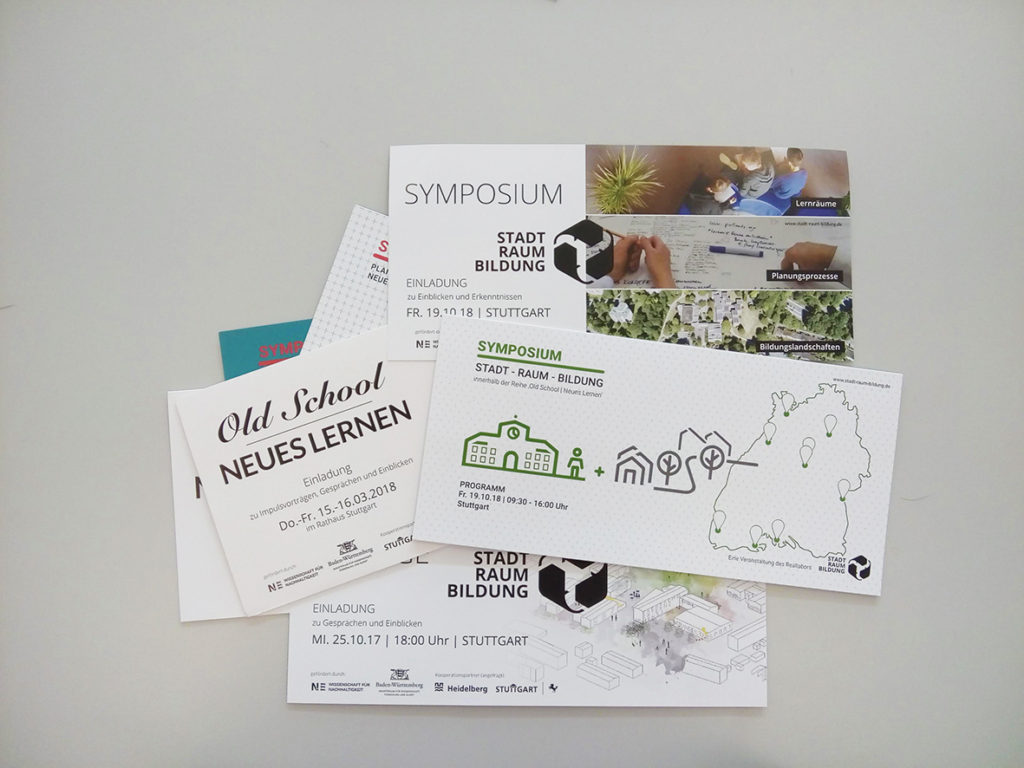Real world laboratory CITY-SPACE-EDUCATION
Reallabor STADT-RAUM-BILDUNG
In the context of today´s information society, Reallabor STADT-RAUM-BILDUNG (CITY-SPACE-EDUCATION) is about the sustainable development of learning spaces and educational environments due to paradigm shifts such as community schools or full-time-schooling.
The main focus is on existing schools, on account of the demographic shift. Our Reallabor is part of the funding line „real-world laboratories on cities” (Reallabor Stadt) of the Ministry of Science, Research and Art Baden- Württemberg (Ministerium für Wissenschaft, Forschung und Kunst Baden-Württemberg).
The research project is a transdisciplinary collaboration of three universities with a total of five professorships. Experts for participatory processes and digital methods as well as partners with experience in the education landscape in Germany, and specialists in the multidisciplinary field are involved as external partners.
In order to research actual schools and their challenges, actors from practice, politics, administration, school and schoolboard, students and parents as well as citizens are involved in order to develop the future settings of “learning”.
The challenge of innovative learning spaces is grounded on the development of concepts for the new requirements of full-time-schooling and inclusive education, both existing and newly developed learning spaces in schools. These changes lead to different requirements and utilization scenarios and mostly to the need for flexible and multifunctional spatial settings. The transformation of the school form and pedagogy has the consequence that schools will have to offer more than just a place to learn and study: school becomes a “living” place. And the requirements associated with this development are often challenges for the municipalities and their existing school buildings.
Throughout the project, several case studies from Baden-Wuerttemberg are analyzed, illustrating a cross-section of the different dimensions of local authorities and building typologies.
With the purpose of developing recommendations for future schools, the research team from Reallabor STADT – RAUM – BILDUNG (CITY – SPACE – EDUCATION), consisting of architects, city planners, educators and practitioners within school planning, needed this “real” contact with the school reality.
The field research pursues the understanding of how learning is organized and how the relationship between day-to-day learning and teaching is structured. The community schools, which took part of the field research were studied through their everyday life, thanks to the support of the entire school community, the teachers’ councils, pupils, school management and parents as well as an interdisciplinary analysis of the building itself and its position in the city.
